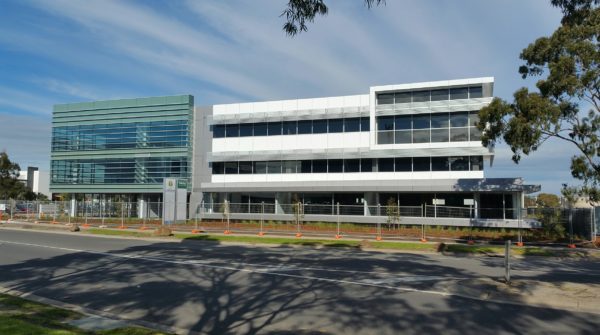Sydney Morning Herald – June 19th, 2013
The Pellicano Group has begun building a large speculative suburban office building in Melbourne’s south-eastern suburbs, bucking the trend towards caution in the market.
The group will move to fill a perceived shortage of office space in the prime bayside market despite little or no other speculative development activity taking place, joint managing director Nando Pellicano said.
The 3600-square-metre office (artist’s impression, right) will cost $11 million to build and is in Moorabbin’s Parkview Estate. It will rise three levels and have a 5 star NABERS Energy Rating, using innovative gas-fired airconditioning.
”Bayside tenants looking for whole-floor or whole-of-building tenancies up to 3600 square metres have limited quality options to choose from in the current market,” Mr Pellicano said.
The estate had a critical mass of 5000 sq m of occupied space across four buildings with more than 3000 people and 60 businesses, he said. There were not many options for tenants looking for new space.
”We’re confident in the area and product we’re delivering,” Mr Pellicano said.
Colliers International’s Rob Joyes said because of the downturn there were no other speculative developments in the suburban office market apart from space Goodman Group and Salter had included in buildings they had already pre-leased.
Businesses were unwilling to move unless they could save costs and there was a trend towards tenants rationalising and reducing floor space, Mr Joyes said.
”I’ve seen tenants rationalise floor area by up to 40 per cent. As a result they’re able to pay more for space in a better-quality building,” he said.
Schneider Electric had recently moved to Goodman’s Ferntree Business Park, reducing its floor area from 9000 to 6000 sq m; and United Energy consolidated two sites into one office in Salta’s Nexus business park, reducing its floor area by half to 2500 sq m, Mr Joyes said.
The development pipeline for suburban offices was expected to increase this year more than in the previous two years but new supply was still below long-term averages, a recent report from Knight Frank suggests.
”Despite uncertain economic conditions, tenant demand remains solid in the suburban office market with net absorption positive in the six months to April,” Knight Frank’s May Melbourne Suburban Office Market Overview states.
Vacancy rates fell from 6.4 per cent to 5.4 per cent in the six months to April, it said.
”Melbourne’s suburban office market remains one of the tightest office markets, not just in Victoria, but nationally,” the report says.
The lean amount of new supply coming on has effectively been underpinned by government-entity backed projects for the Australian Taxation Office, South East Water and City West Water, it said.


